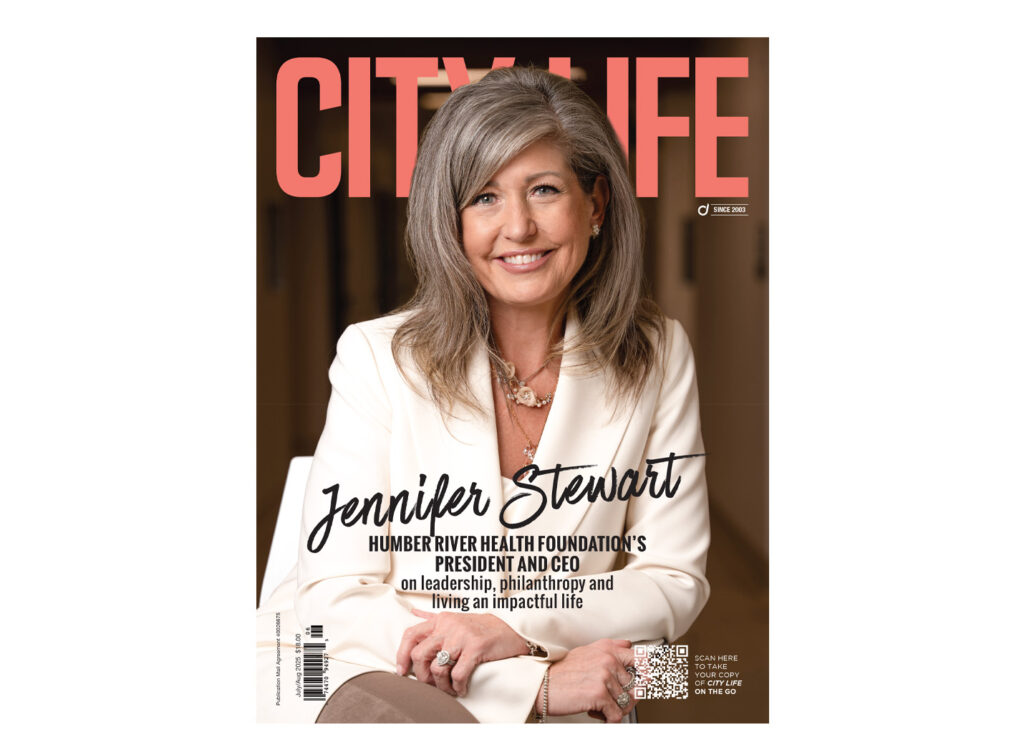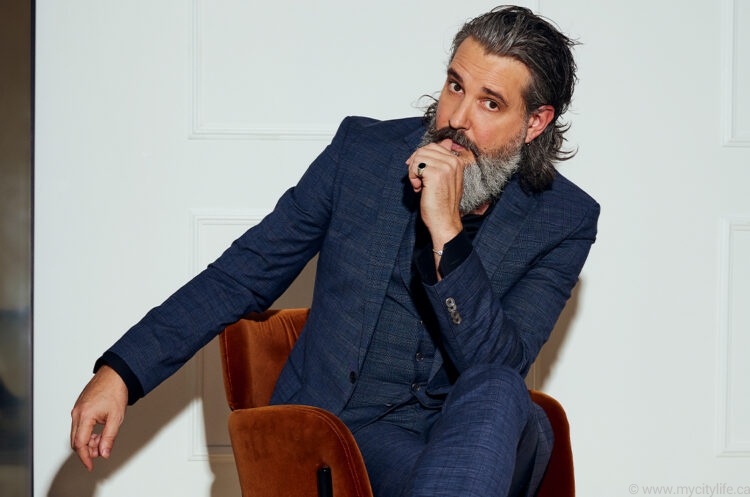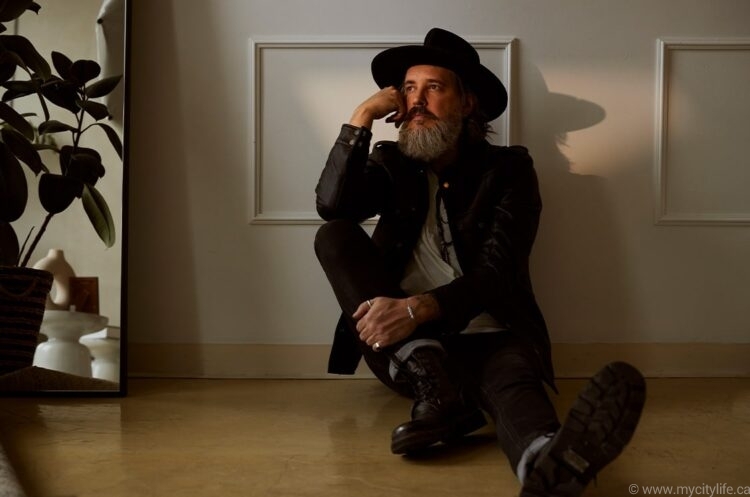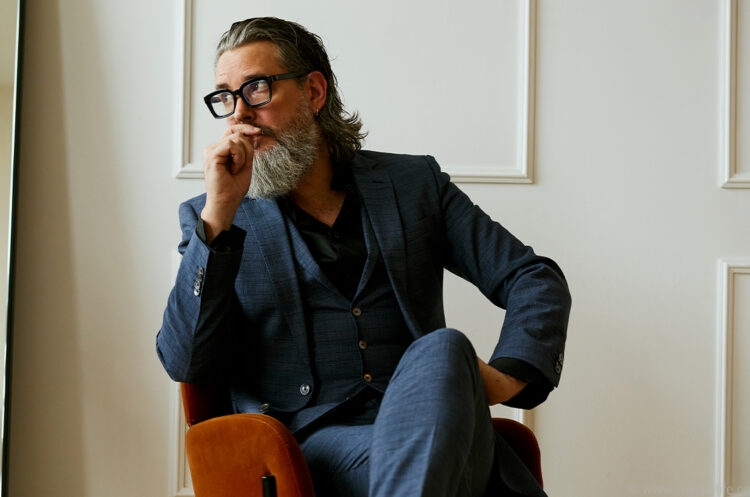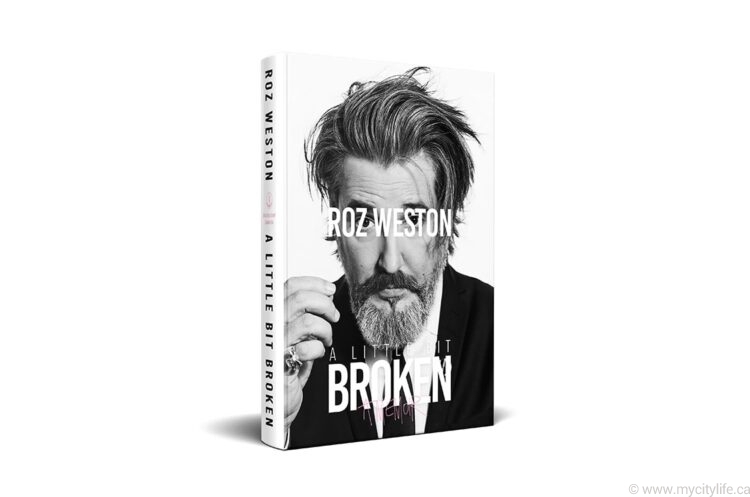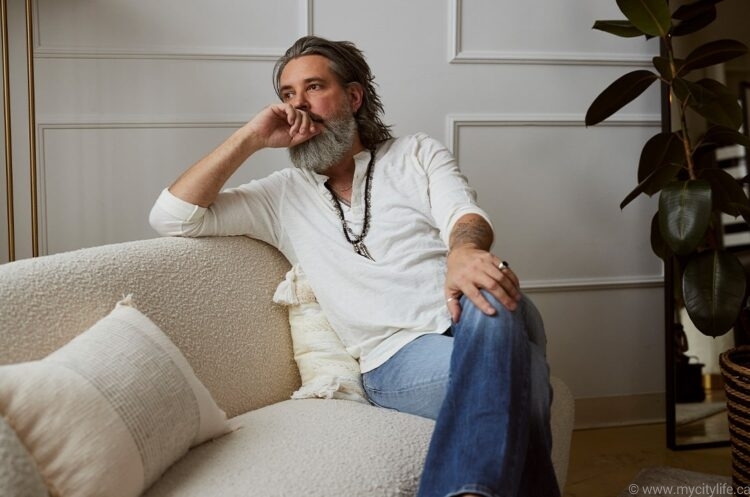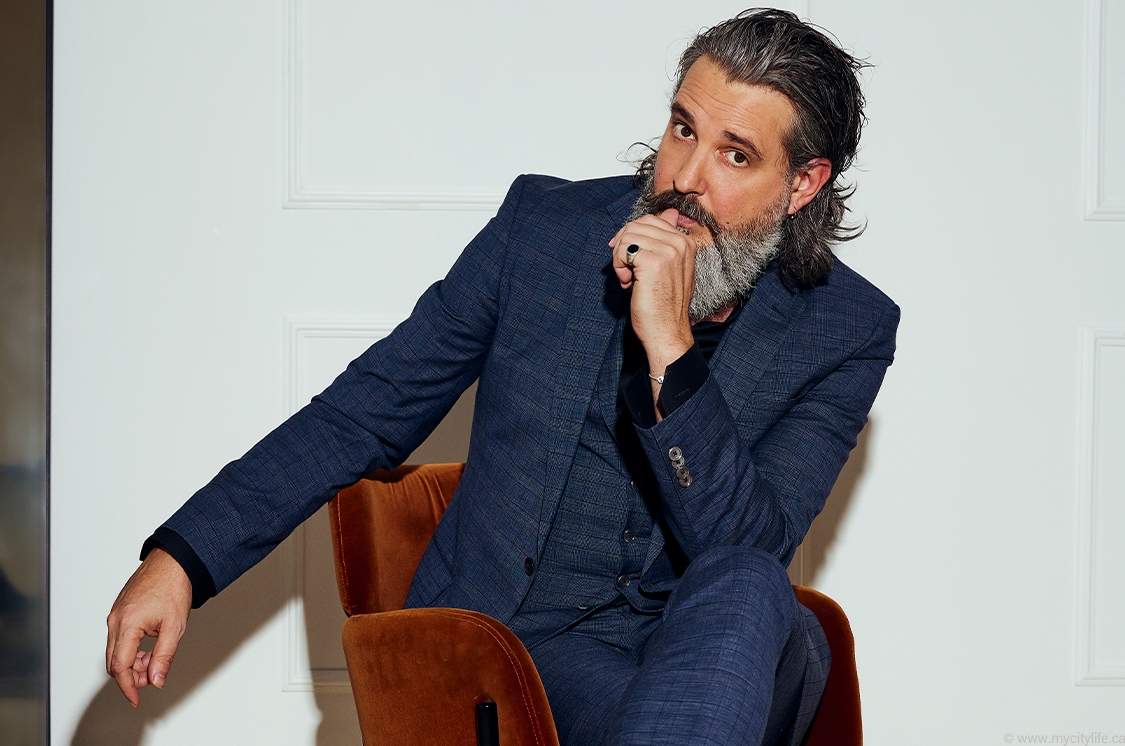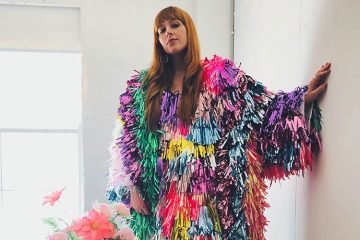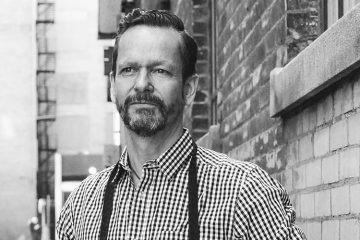Roz Weston: Broken And Beautifully Candid
The multi-platform entertainer and author of A Little Bit Broken, Roz Weston shares his journey from dreaming big in a small town to manifesting those dreams in the big cities, and the life-changing hurdles he overcame along the way
He is a college dropout, a Canadian Music and Broadcast Industry Awards winner, a New York Festivals Radio Awards winner and a Canadian Screen Awards winner. In 2013, Hello! magazine named him one of the 50 Most Beautiful Canadians. Known for his signature witty humour, charisma and honesty, Roz Weston is so much more than the entertainer we know him to be.
Growing up in the small town of Acton, Ont., where everybody knows everybody, he was only motivated to get out. From childhood to his teenage years, he saw big cities by watching television, and he spent most of his time forming plans for how to get out of Acton.
Although, after finally moving out and going to college for a year and then moving to New York City and later Toronto, he graciously gives credit to Acton. After he met different people who didn’t come from small towns, he realized that Acton had provided the foundations for his uncommonly courteous and ethical behaviour towards others. “One thing about growing up in a town like Acton, where everybody knows each other, is that you learn very, very early that how you treat people matters,” he says.
In 2011, Acton expressed its own pride in Weston by naming a street after him. As Weston describes it, Roz Weston Lane is “the most small-town Canadian thing ever — it’s an alley that runs behind and connects the Tim Hortons to the Beer Store.”
Although he grew up with above-average confidence and was a popular kid who could make friends easily, Weston grappled with incredibly low self-esteem. Wait one second — how is this possible?
“I realized years later that confidence comes from people telling you you’re great, [but] self-esteem is built by doing things that are great,” he recalls. “It took me a long time to realize that, that I was living a life where I was so terrified to put myself out for anything, not because I didn’t think I was talented enough or because I didn’t think I had the skills but because I was just so terrified to fail. And my goal when I was growing up, I thought that I would be a success if nobody ever saw me fail. So I didn’t take any chances, and I didn’t start to take chances until way later in life, way later than most people would. I sort of had to play catch-up.”
Weston’s No. 1 national bestseller tell-all memoir, A Little Bit Broken, is a deeply personal and inspiring account of, as he describes it, “the whole story I never shared before.” He reveals an array of bad decisions he has made and reconciled with and, without question … he has made
them all.
I Wanted To Give To Her The Thing That I Wish My Dad Gave To Me, Which Is An Unfiltered Truth Of Who I Am
For Weston, the importance of passing on family stories to the generations that will follow him stems from the fact that his father’s passing left him with unanswered questions. “Part of the reason I wrote the book was my dad died when I was in my 20s. And there’s no real permanent record of him. I don’t have any videos of him. There’s no audio, I don’t remember what his voice sounds like. And I think that you are your family’s storyteller. And these are the stories that we tell. And I realized that when I’m gone, so are his stories. So, part of writing this book was a way to leave a permanent record of him because he was so wonderful. He was also a great storyteller.”
Feeling the need to fill a certain lack that was lingering in his soul, Weston was motivated to sit down and write the book for his teenage daughter, Roxy. That way, she would not have to endure the same level of grief and doubt. “I wanted to give to her the thing that I wish my dad gave to me, which is an unfiltered truth of who I am. She doesn’t have to read it. But if at some point she does have questions, all the answers are in that book,” says Weston
Grief is one of those things that you can never prepare for. It affects everyone differently, and the ways we manage grief differ from person to person. Weston reminds us that life is too short and precious to be taken for granted. We should cherish the moments we have with our loved ones to the fullest.
“When my dad died, I felt guilt. I felt that I was too young, and I was too slow, and that he was going to die having never seen his hard work pay off with me. Because, when he was alive, I was always on my way to becoming something, I was never that thing,” says Weston. “I just didn’t have it in me and, when my dad was dying, I killed him off before he was dead. I had a moment with him when he was going through chemo and radiation, and I said goodbye to him while he was still alive. But for the last few months, while he was still alive, I didn’t talk to him. I wouldn’t return his phone calls … I robbed myself and I robbed him of the opportunity for the two of us to say goodbye to each other.”
Although he had been raised in a home that celebrated emotions and was encouraged to express them, Weston found himself internalizing a multitude of raw emotions that began to boil. Not a big reader in general and unfamiliar with the extent to which other memoirs typically reveal the truth, Weston decided not to hold back when writing his. He told the world about a sexual assault that happened to him when he was younger and how that 10-minute incident would eventually shape him into the man he is today.
I Robbed Myself And I Robbed Him Of The Opportunity For The Two Of Us To Say Goodbye To Each Other”
“I didn’t realize how much it had changed my life at the time. It was only years later that I realized I always remembered that event happening. I was in my 30s before I realized that it shouldn’t have happened. It took a long time to process. So many of the decisions that I made throughout my life were based on that one day,” says Weston.
Moving forward, Weston shines a light on the fact that young men are resistant to freely expressing their feelings of guilt and trauma. Since it is mostly young women who are sexualized, demonized and body-shamed, young men who are similarly targeted are often left out of the conversation — everybody just presumes that such things never happen to them, to the extent that many of the young male victims themselves pretend that those issues don’t exist when they very much do. “I almost destroyed my liver, taking diet pills when I started working in television, because one boss I had said one sh—y thing about my body, and I almost killed myself trying to prove him wrong,” says Weston.
Self-harm was something that Weston was familiar with from the age of 14 to when he was 30. Although he admits he was never suicidal, he never understood why he would burn himself with matches as a teenager. All he knew was, “It became the thing that I loved and hated the most in my life. I would do everything I could to hide the scars from it,” says Weston. Although mental health was not an openly discussed mainstream topic in society then as it is today, he explains that it did not mean people were not compassionate.
They were simply not as equipped then to take on people with that type of problem and to determine exactly what help they needed.
Fortunately, the mental-health narrative has changed since he was a teenager, and Weston loves it. A TV series on Netflix, Ginny and Georgia, even presents Ginny Miller as an angsty 15-year-old who we learn self-harms by burning herself and is eventually discovered and confronted by her mother, Georgia. Weston says, “I love that sort of content … people are just so in tune with that type of conversation. It takes people who are not afraid to have this conversation to move it forward, where I never would have done this when I was that age.”
Throughout Weston’s memoir, he candidly shares the entirety of the many low moments in his life. However, he brings smiles, shock and happiness to readers and fans around the world when he includes his marriage proposal to his then long-term girlfriend, Katherine, at the end of the book.
Weston admits that after 17 years of being together, he knew he was going to propose but did not know if anybody had ever written an entire book just to propose to the person they love. “I wanted to be one of the first, and I thought it would be cool because marriage was something that we’d never really discussed with any sort of seriousness before,” says Weston. Weston adds that they never talked about marriage because they were so comfortable, and there was so much love. But he knew she was not opposed to it.
He reveals that the very first chapter he wrote was the proposal chapter. He says, “I wrote the book on the couch, right? Katherine was sitting beside me and Roxy, and I would finish a chapter, and I would take my computer off my lap, and I would say, ‘Hey, Katherine, do you have five minutes?’ And she would say, ‘Yeah,’ and so I would put the computer on her lap, and she would proofread a chapter. So she read this book multiple times before it was finished, but never saw that chapter.”
I Needed People To Know That There Was A Happy Ending, And I Wanted People To Go Into This Book With Optimism”
Weston strategically sold the book without the written proposal because what was most important to him was for the book to hold up based on the rest of the story rather than selling the book as a stunt. When he began submitting chapters to his editor, the proposal chapter was never seen until the moment the final manuscript went to the publisher, when he included it. Although doing so understandably dismayed his editor and publisher, it was essential for Weston to give away the ending. He explains: “I released the proposal chapter and the video before the book came out because I knew that this story, this book, is a tough read. I needed people to know that there was a happy ending, and I wanted people to go into this book with optimism”.
Before stepping down from Entertainment Tonight, Weston would reportedly wake up at 3:50 a.m. to get to work by 5 a.m. to start recording for The Roz and Mocha Show from 6 a.m. to 10 a.m. Then he would go on to tape ET Canada from 10:30 a.m. to 5:30 p.m., finally arriving home by 6:30 p.m. Weston adds that during his younger days, what made him bankable — despite not being the smartest person in the room, he says — was his stamina and motivation, both of which enabled him to work longer hours and take on harder tasks and more pressing deadlines. “I could outwork everybody,” Weston says.
Being the first person in Canada employed by two major and competing companies and after being on ET Canada for 17 years and on the radio for 14 years and counting took its toll on Weston physically and mentally. More importantly, it took time away from his family.
“I was working so hard to make sure that my kid had everything that I started to fear that, in my quest to make sure that we were taken care of, that would lead to her waking up one day, realizing that she got ripped off. That started to haunt me. My desire to protect us and make sure we were good was actually doing harm. I remember with my dad, the only thing that mattered was just kicking it with him. Just him being present. I realized that the one thing that I wasn’t was present,” says Weston. Money and status are not the defining elements of professional success. For Roz, success means putting himself in a position where he can say “no” and have it respected.
After stepping down from ET Canada with 17 incredible seasons under his belt, Weston has embraced knowing when to say “no” and being more present with his family. He spends his days making millions laugh on The Roz and Mocha Show and coming home as the househusband for the rest of the day. He says, “I have dinner ready for the girls when they get home. They walk into the house and I’m in an apron.” For those who want to know what’s cooking in the Weston home, pasta, tacos and burgers are their favourite go-to dishes. Afterward, the family happily kicks back on the couch with their four cats.
Interview by Estelle Zentil
